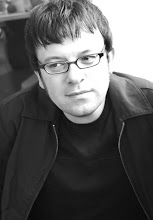Fateless- Warning some plot revealed
I saw Fateless a few weeks ago; it still sticks with me. The film is directed by a Hungarian, Lajos Koltai; he was primarily a cinematographer, most notably for Istvan Szabo. "Sunshine" was an amazing movie, so I was hopeful that Koltai would not butcher one of my favorite novels. Fateless was written in 1975 by the Nobel Prize winning Hungarian, Imre Kertesz. The movie follows the book quite closely from what I remember. One of the films haunting elements is the representation of camp scenes in a montage that lacks a narrative frame; it invites one into the confines of misery.
Hungary was a German satellite state during WWII, which enabled Hungarian Jews to live in relative peace form much of the war. There were some massacres at the beginning of WW2 by national Hungarian forces under Horthy and anti-semitic laws in the 20's and 30's; they did avoid mass deportations to concentration camps until 1944, when Horthy's loyalty wavered and he was rendered effette by the German allied Arrow Guard. It is at this time that Marcel is arrested on his way to work and deported with some other Jews. They are held with no idea of what will become of them in various places. Briefly he finds himself in Auschwitz and is then shipped off to Buchenwald. Slowly Marcel's expectations of the world alter.
What I find fascinating about the movie is that it risks total boredom. Life in the concentration camps has been represented in such wildly disparate ways. We have the fire and brimstone of Elie Weisel, the middle ground of a Tadeusz Borowski, or the tame version of Kerstez. Weisel would have you believe that you actually entered hell: flaming pits where lucid individuals are thrown in, torture and cruelty at every turn. In many readings of first person accounts of the Holocaust, I don't often find the Weisel version. One was not generally tortured and brutalized every second of the day. Your treatment did depend on the general character of the Kapo you served under though.
Fateless explores the reality of life. Waiting. Standing. Starving. The 3-4 hour roll calls, standing in the brutal cold ill clothed or in stifling heat. Trying to perform hard labor with various injuries and few calories. In one scene you see jews merely mimicking work. What is the value in this? Perhaps it seems that I am trying to belittle the experience of the Holocaust? Not at all. If we sensationalize the Holocaust to an unimaginable horror, then we may fail to see the reality of another one manifesting itself before our eyes. I feel the same way regarding representations of living under fascism. The German historian Sebastian Haffner wrote a great book entitled "Defying Hitler"which describes and characterizes life under Hitler when he took power. Life did not really change that much for the average German. It did change for the Jew, but the radical changes were years away. When Jews were banned from most employment, Haffner stated that they found alternate ways to provide for themselves. While it seemed unfair to him, he did not characterize it in an extreme fashion. Of course, your average European was accustemed to a certain degree of anti-semetism. These historical moments are human experiences and should be recognizable by humans, not far distant hells that one cannot imagine.
Are we living in the beginnings of a form of fascism? Hard to tell. It is not out of the question; it would certainly have its own face. Halliburton has been awarded a government contract to build detention camps for "immigration emergencies" or "to support the rapid development of new programs." While speculation of the potential uses of these camps may be left-wing rhetoric, the actual construction of them is a reality. Is it a new Dachau for politcal undesirables, or a back up plan given the intense weather patterns etc... we are experiencing? Given the lack of any mainstream media coverage or mention by Bush, many of us will assume the worst. Either way, the warning signs are there.
The reality of the camp survivor's immediate post-war experience is not often represented in novels or films. Often, we have a dramatic moment where the protagonist stumbles into a person he hasn't seen since before their deportation; I am thinking of "Europa Europa" here. Marcel makes the journey back to Budapest only to discover an ersatz regret regarding his misfortune or fear and indifference. In an encounter on a bus, Marcel is asked questions by a fellow denizen. The man seems appalled by Marcel's answers. His family friends greet him, but all interactions are uncomfortable and are shaded with a shame.

